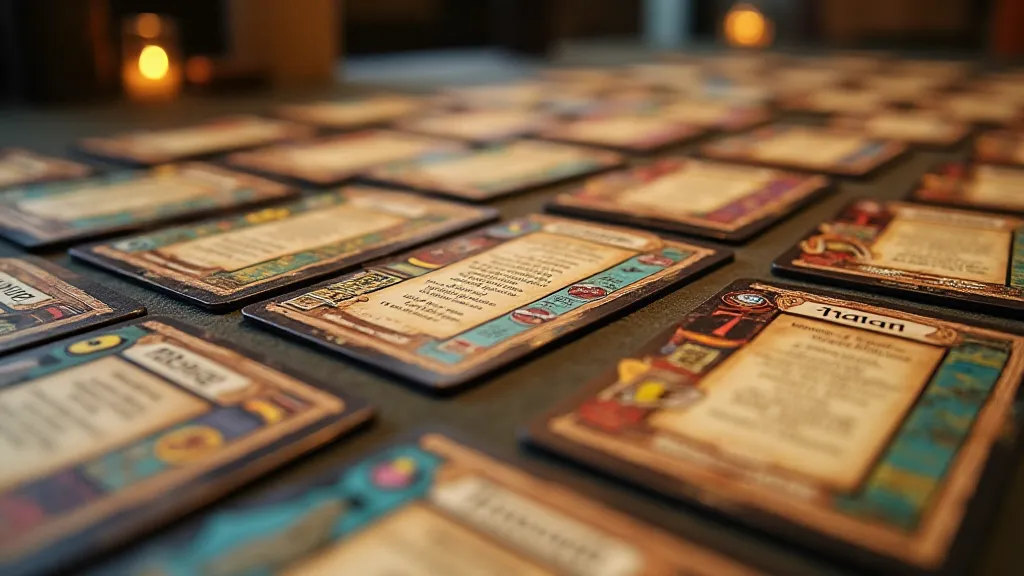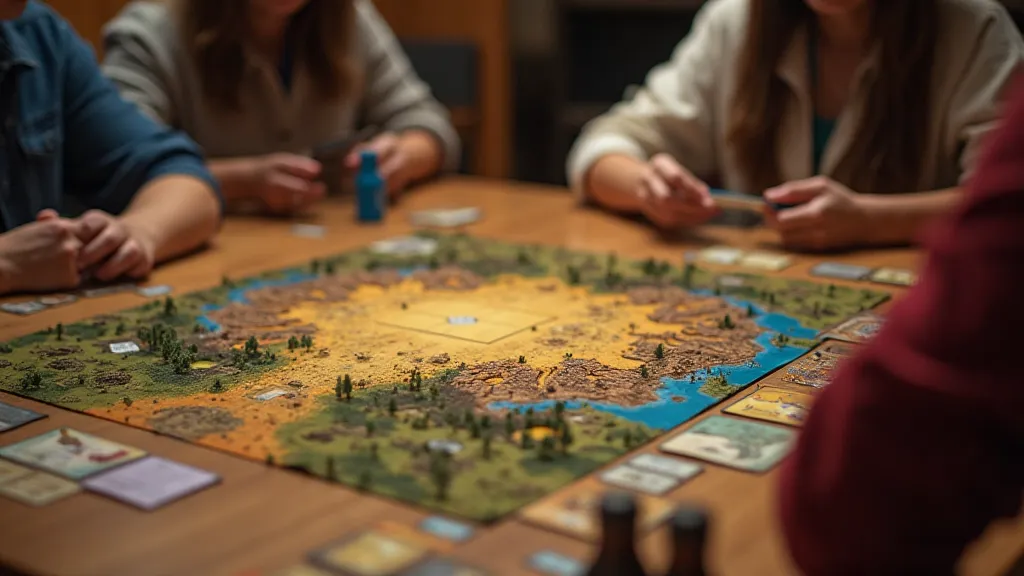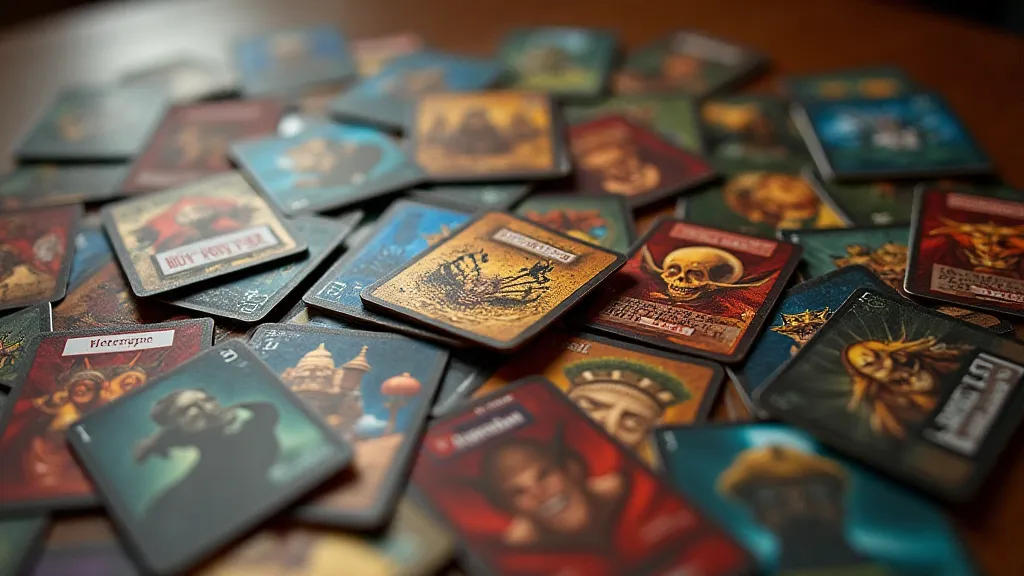Intro to Deckbuilding: Dominion and Beyond
Deckbuilding. It’s a term you're likely hearing more and more in the board game world, and for good reason! It’s a fascinating engine-building mechanic that’s taken root in countless games, offering a satisfying blend of resource management, strategic card play, and a surprising amount of replayability. This article will dive into the basics of deckbuilding, using Dominion as our prime example, before briefly touching on how the mechanic has evolved in subsequent games.
The Core Concept: Building Your Engine
At its heart, deckbuilding is about starting with a small, often weak, deck of cards and gradually improving it over the course of the game. You do this by purchasing new cards – often more powerful or efficient versions of what you started with – and adding them to your deck. The challenge lies in carefully selecting which cards to acquire and when, balancing immediate gains with long-term engine building. It's a strategic puzzle akin to optimizing a civilization’s growth, much like the considerations players face in a game like 7 Wonders, where careful planning and resource management are essential for victory.
Dominion: The Classic Example
Dominion, designed by Donald X. Vaccarino, is widely considered the quintessential deckbuilding game. In Dominion, you start with a small deck of Coppers and Estates. Each turn, you draw a hand, use Action cards to generate more actions (allowing you to play more cards), Buy cards to add stronger cards to your deck, and then discard your hand to begin again. Your goal is to accumulate Victory Points (represented by Province, Duchy, and Estate cards) and have the most at the game’s end.

Understanding Dominion Synergies
The genius of Dominion lies in the card interactions. Certain cards provide extra actions, allowing you to chain multiple actions together. Others let you draw more cards, increasing your hand size and potential. Some let you trash (permanently remove) weak cards, streamlining your deck. Mastering these synergies is the key to success. The strategic depth comes from evaluating trade-offs, a skill valuable not only in Dominion but also in many other complex games, requiring careful consideration and planning much like the scoring considerations of scoring in Gloomhaven.
- Actions: Cards like Smithy draw more cards, giving you more options.
- Treasure: Silver and Gold provide the money needed to buy more powerful cards.
- Victory Points: Provinces are the ultimate goal, but are expensive and often require a well-oiled engine to acquire.
- Trash: Cards like Chapel or Remodel remove weak cards like Coppers and Estates, improving your deck’s efficiency.
Beyond Dominion: Evolution of the Mechanic
Dominion’s success spawned countless games that adopted and refined the deckbuilding mechanic. While the core principle remains the same, many games introduce new twists. The focus can shift from individual victory to collaborative problem-solving, mirroring the dynamic nature of anticipating trends in the expanding tabletop cosmos as detailed by The Dicefall Oracle.
- Star Realms: Introduces direct player interaction and a focus on attacking your opponent’s health.
- Legendary: A cooperative game where players build a deck to defeat a powerful villain.
- Clank!: Combines deckbuilding with a dungeon-crawling board game.
- Aeon's End: A cooperative game with a unique turn order system and monster AI.

Tips for Deckbuilding Success
The art of deckbuilding isn’t just about accumulating powerful cards; it’s about creating a cohesive system. Think of it as a carefully constructed ecosystem – each component plays a vital role. Many players find themselves drawn to cooperative games, and one particularly compelling example showcases how deckbuilding principles can be applied to defend nature, as described in Spirit Island’s strategy guide.
- Thin Your Deck: Regularly trash weak cards like Coppers and Estates.
- Prioritize Actions: More actions equal more opportunities to buy and play cards.
- Balance Short-Term and Long-Term Goals: Don't just focus on Victory Points; build an engine that can acquire them consistently.
- Adapt to Your Opponents: If they're aggressively trashing cards, consider doing the same.
Digging Deeper: Advanced Deckbuilding Strategies
Beyond the basics, seasoned deckbuilders often employ sophisticated techniques to maximize their engine’s efficiency. One common strategy involves creating “action chains” - sequences of cards that generate a cascading effect of actions and card draws. This requires a nuanced understanding of card interactions and a willingness to experiment with different combinations. Consider how this strategic depth parallels the challenge of optimizing a civilization’s growth, similar to the complexities found in games like 7 Wonders.
Another advanced technique is “resource cycling.” This involves using cards to generate resources (such as actions or card draws) repeatedly, creating a self-sustaining engine that can churn out victory points consistently. Effective resource cycling requires careful planning and a deep understanding of the game’s economy.
Furthermore, many deckbuilders find themselves drawn to games that incorporate unique card abilities or mechanics. These often require a different approach to deck construction and engine building, rewarding players who are willing to adapt and experiment. Games like Legendary and Spirit Island exemplify how cooperative gameplay can enhance the deckbuilding experience, emphasizing collaboration and strategic problem-solving.
The Future of Deckbuilding
The deckbuilding mechanic continues to evolve, with designers constantly finding new and innovative ways to integrate it into their games. We’re seeing a rise in hybrid games that combine deckbuilding with other mechanics, such as worker placement, area control, and dungeon crawling. This blending of genres is pushing the boundaries of what’s possible with deckbuilding, creating exciting new gameplay experiences.
Conclusion
Deckbuilding is a rewarding and engaging mechanic that has brought a fresh wave of creativity to the board game landscape. Understanding the fundamentals, as exemplified by Dominion, will not only improve your game but also deepen your appreciation for the ingenuity behind this popular game design. Whether you've just begun your journey into deckbuilding or are a seasoned veteran, there's always something new to learn and discover in this fascinating and ever-evolving mechanic. The principles you learn in a game like Dominion, regarding planning and resource optimization, have broader applications beyond the tabletop, improving problem-solving skills applicable to many aspects of life. Dive in and start building!






